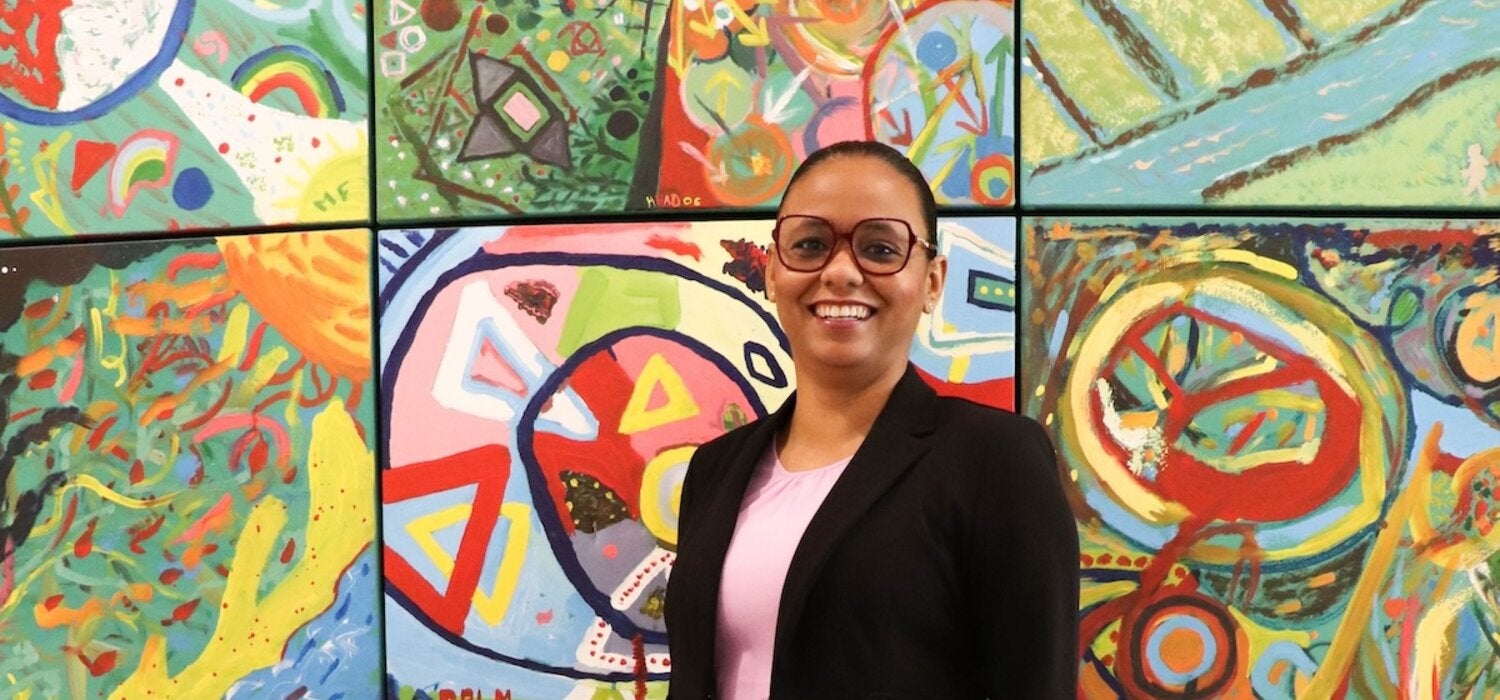An interview with Stephanie Cheuk-Alam Head of Environmental Inspection at the Bureau for Public Health (BOG) in Suriname.
November 24, 2023
In an interview earlier this year, we had the privilege of delving into the world of environmental health with Stephanie Cheuk-Alam, who serves as the Head of Environmental Inspection at the Bureau for Public Health (BOG) in Suriname. Her journey, passion for environmental sciences, and commitment to the convergence of environmental and public health have been instrumental in shaping her role. In this interview, we explore Stephanie's path, the challenges she encounters, and the invaluable collaborative support provided by the Pan American Health Organization (PAHO) in Suriname.
Can you tell us about your journey in environmental health and how you ended up at BOG?
"I completed a bachelor's degree in Environmental Sciences and initially applied to work in planning at the Ministry of Health. However, I was placed at BOG as a policy officer by the former director. After a year, I transitioned to the Environmental Inspection department. In 2017, I became the Acting Head of the department, and in 2020, I was officially appointed as the Head of Environmental Inspection at the Bureau for Public Health (BOG)."
What sparked your interest in environmental health?
"My interest in environmental health developed during my studies. I realized that human activities impact both the environment and health, often with both positive and negative effects. I furthered my knowledge by earning a Master of Science in Public Health at the Anton the Kom University of Suriname in collaboration with the Tulane University School of Public Health."
What are the challenges you face in your role at BOG?
"The challenges in my role include managing personnel, securing necessary resources, and responding to the growing demands from the community. Additionally, the department faces increasing global environmental issues that require attention. Balancing inspection work with broader environmental health concerns is a constant challenge, but having a supportive team makes it manageable."
Can you share your experience as a Climate Change and Health Leadership Fellow?
"I joined the fellowship program in May 2021, which aimed to create a network of professionals in the region with expertise in climate change. It was a collaborative effort between the European Union, PAHO, and the University of the West Indies. The program allowed for knowledge sharing and discussions among professionals from various disciplines within the Caribbean region. As one of the activities for this program I conducted a workshop in Suriname to raise awareness about the health sector's role in climate change adaptation. I also worked with the community of an indigenous village in Suriname on the development of a water vulnerability assessment tool. Based on needs identified during the development of this tool a climate change and WASH workshop, based specifically on that indigenous village was included in the project."
Could you explain the scope of environmental health in Suriname?
"Environmental health in Suriname mostly encompasses preventive measures to prepare for various environmental issues, such as air and water pollution, soil contamination, industrial development, food safety and integrated vector management. Climate change and the increasing demand for support from businesses are also part of our focus. We often provide assistance to companies looking to start or expand their operations while ensuring they consider the environmental and health impact."
How has PAHO Suriname supported BOG in addressing environmental health challenges?
"PAHO has been instrumental in our efforts, providing training, knowledge sharing, guidance documents, fellowships, equipment and support in various areas. They've helped us develop vector control plans, food safety training for our inspectors, training in integrated vector management, and outbreak investigation training. PAHO's assistance has been vital in strengthening our capacity to address environmental health issues."
How do you see the future of environmental health in Suriname?
"Suriname is making strides in environmental health, and the focus on climate change adaptation is growing. PAHO's support is crucial in building our capacity to address emerging challenges. The collaboration with PAHO has been a driving force in ensuring that our health system remains resilient in the face of climate change and environmental threats."
We have requested support from PAHO for the development of our national adaptation plan for climate change and health (HNAP). The plan aims to enhance our resilience to climate change impacts on both communities and the health system in Suriname. PAHO's guidance documents and training have been invaluable in this process. We've also engaged in multisectoral workshops to ensure a comprehensive approach to climate change adaptation. Support from the PAHO is will be essential in the development of not only the HNAP, but also in the climate change vulnerability and risk assessments for the health sector - Stephanie Cheuk-Alam, MSc.
The collaboration and support from PAHO Suriname have been pivotal in strengthening the environmental health efforts of the Bureau for Public Health (BOG) in Suriname. The support extended by PAHO Suriname to BOG encompasses a wide array of initiatives, underpinning the substantial impact of their collaboration. This support includes training, knowledge sharing, guidance documents, fellowships, equipment donations and critical assistance in numerous areas.
Furthermore, PAHO will play a vital role in aiding Suriname in developing a robust national adaptation plan to address the impacts of climate change. The comprehensive support package provided by PAHO Suriname is instrumental in enhancing BOG's readiness to mitigate the multifaceted challenges they face in the realm of environmental health.
Stephanie Cheuk-Alam's journey and the challenges she has overcome reflect the dedication to safeguarding both the environment and public health. As the world faces increasing environmental challenges, the continuous partnerships like the one between BOG and PAHO are essential for creating a healthier and more resilient future.

